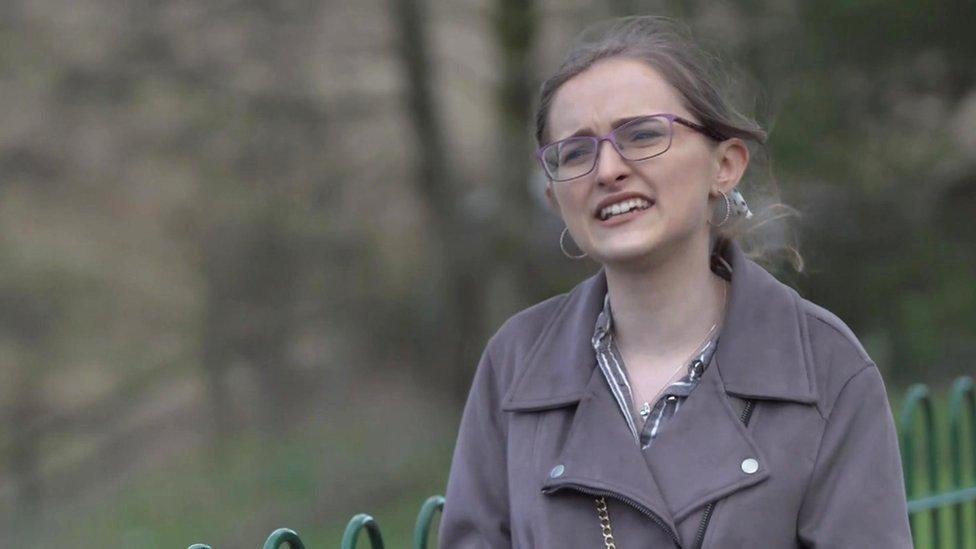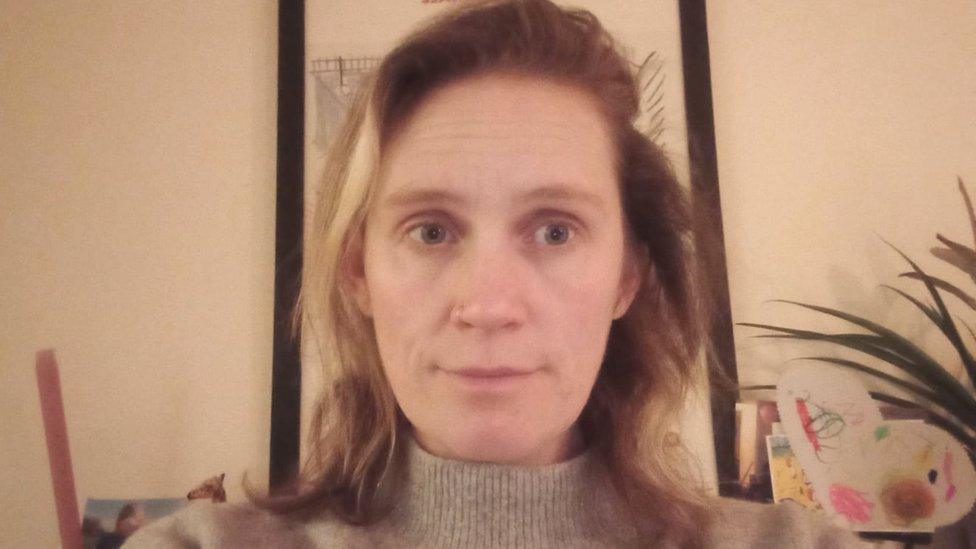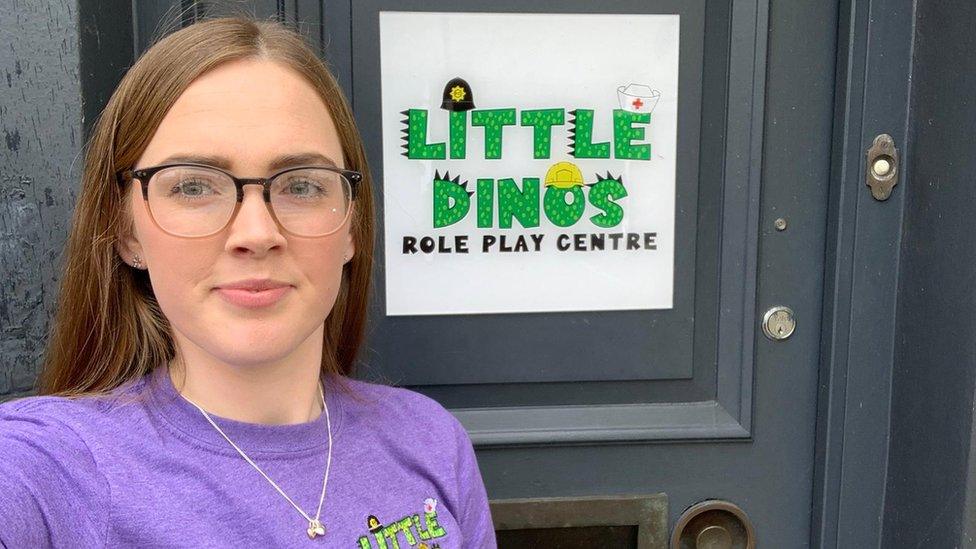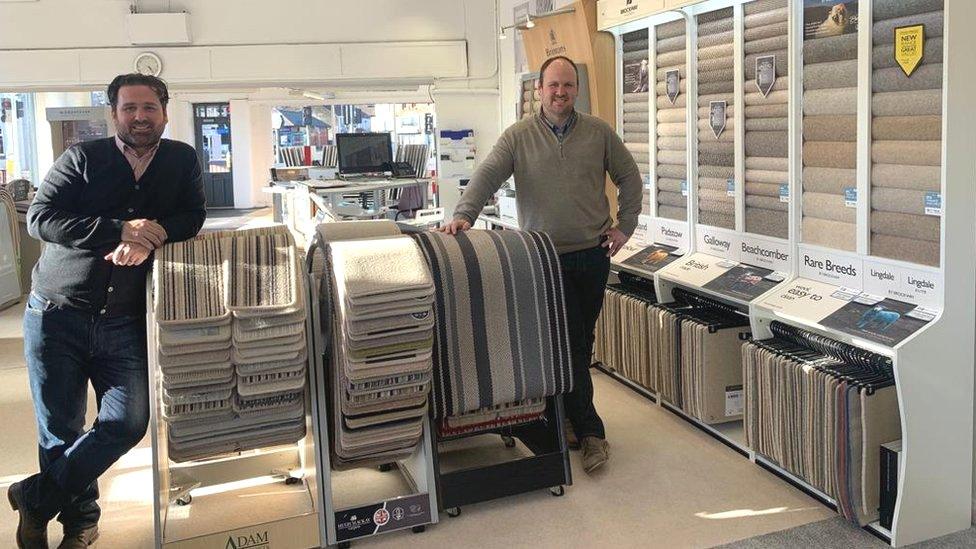Covid has widened inequality in Wales, data indicates
- Published
Covid: Jobseekers struggling to find work in the pandemic
The pandemic appears to have widened financial inequalities in Wales, according to official statistics.
Wages in higher-paying industries, such as public sector office jobs, have hardly been affected by lockdown, with only 1% of jobs furloughed.
But in the low-paid hospitality sector, 78% of jobs have been furloughed with employees on 80% of their usual income.
At the end of July, more than 500,000 people in Wales who were still employed were living on less money.
According to UK Treasury data, external a total of 400,800 people were furloughed and 108,000 were getting self-employed support - 30.6% of jobs in Wales.
Even before Covid, Office for National Statistics data, external showed wide gaps in earnings between different sectors and the pandemic's economic impact has hit lower-paid jobs most heavily.
Average wages in public administration in Wales were £680 a week, according to the ONS, compared with £360 in hospitality.
Furlough was introduced to "hibernate" jobs to avoid the mass shedding of workers seen in previous recessions. It has been successful, but unemployment has also risen.
There were 68,000 people unemployed and looking for work in Wales at the end of 2020 - 23,000 more than a year earlier.

Caitlyn Morgan said the pandemic "has been terrible for me"
Caitlyn Morgan, 20, from Fochriw, Caerphilly county, worked in Marks & Spencer in Cardiff on a placement arranged by The Prince's Trust before the pandemic, but has been unemployed ever since and misses work.
"I really enjoyed the job, I'm a very people person and this pandemic has been terrible for me.
"It was the face-to-face contact, that pride in being able to help someone, organising different things.
"Since the pandemic hit and you've been stuck inside, it's been really difficult to get that sense of satisfaction and pride again in the stuff that you do."
The Prince's Trust said its research showed 48% of those not working or in education said they "can't see an end" to their unemployment.
Women in Wales have been part of the Covid Realities project at University of York, external, sharing online diaries and sharing problems.
Dr Ruth Patrick said families were saying: "I can't afford to heat this house during the day and so I'm going to have to keep the heating off, be cold, know that my children are cold just so I can put a meal on the table this evening."

Dr Ruth Patrick says families have been turning off the heating to feed their children
One woman from Wales wrote: "Before Covid my husband was employed, we were still low income and, with four growing boys, money doesn't stretch far but we were managing.
"Then halfway through Covid my husband was made redundant."
She waited six weeks for her Universal Credit money to arrive.
"It's been horrific from one day to the next worrying if we will make it," she said.
"Through all this three of our sons had birthdays. They knew this year would be different because of Covid, but it was so different and sad seeing their faces when they got a little something each instead of what they asked for.
"They didn't even ask for much, what they wanted was only around £15 each and we couldn't do it, my heart hurt for them."
Another woman in Wales wrote: "All our wages go on our bills and food, don't really have any spare... it's hard at the minute, boys need bits for school, paper etc and would like to get some more reading books but prices have rocketed because everyone is at home."

Ffion Thompson: "I had so many sleepless nights thinking 'how am I going to afford this?"
Ffion Thompson, 25, from Abergavenny, Monmouthshire, had been working as a nursery assistant and was saving to set up her own business.
When Covid hit she was furloughed and had time to develop her dream - a toddlers' play centre.
Little Dino's opened in Usk in November with two staff. Three weeks later, Wales went into lockdown again and the play centre has been closed since.
Her boyfriend now works from home and she relies on him to pay the bills.
"I just remember freezing, the thought 'how am I going to survive? I've got staff to pay, bills to pay, the rent to pay'.
"I had so many sleepless nights thinking 'how am I going to afford this?"
She applied for grants, was told she was not eligible, but kept challenging the decision and finally got help.
"The next few months could be a struggle but I've got to be optimistic, I've got to keep smiling to keep the staff happy to keep the business running."
With people doing professional and office jobs generally earning as much as before the pandemic, while shops and restaurants are closed, their savings have increased.
A report from the Bank of England found 42% of high-income employed households saved more during the pandemic than usual, compared with 22% of low-income working households.
House prices have risen considerably, by 8.5% according to the ONS, unlike during other economic crises, while many owners have redecorated their homes.

Carpets firms like Jamie and Richard Price's have benefitted by consumers spending on their homes
Jamie and Richard Price's family business, Quality Carpets Direct, has three south Wales stores.
Richard Price said customers have "saved money from going on holidays, saved money not going out as much and happily have spent some of that money on home improvements, paints and carpets".
"We understand the hard times that pubs and restaurants have had, but I think home industries have been better.
"When people are in their house so long they want it to look nice and made the best of it and that's been a benefit to us."
What happens after lockdown?
We cannot know how we will all behave when restrictions end.
Some believe that those with money will go on a spending spree that will lift the economy and create work.
Others are more cautious and think that we may not return to the High Streets and pubs as much as we used to.